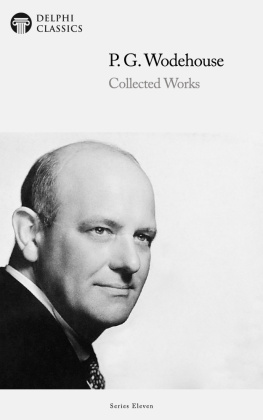PREFACE
Table of Contents
It was the practice of the late Lord Lyons to preserve carefully the whole of his correspondence, whether official, semi-official, or private, and upon his death this accumulation of papers passed into the possession of his nephew, the present Duke of Norfolk.
I have been able to draw to some extent upon my own diary and recollections of the five years (1881-1886) during which I served as a member of Lord Lyons's staff at the Paris Embassy, but that period represents only a very small portion of his official career, and it is from the above mentioned papers that this work has been almost entirely compiled. All the material was placed unreservedly at my disposal, and I desire to make full acknowledgment of this mark of confidence. I desire also to express my gratitude to the numerous persons who have readily given their consent to the publication of important letters in which they possess a proprietary interest: notably to Emily Lady Ampthill, Lord Clarendon, Lord Derby, Lady Granville, Lady Ermyntrude Malet, Lord Rosebery, the Hon. Rollo Russell, Lord Salisbury, and Lord Sanderson.
I am indebted to Mr. J. F. Marshall and Mr. Alan Parsons for their assistance in sifting the enormous mass of documents found at Norfolk House, and to the Hon. Arnold Keppel for a service rendered at a subsequent period. Finally, I have to thank Mrs. Wilfrid Ward for an interesting contribution entitled "Lord Lyons in private life," containing personal details only available to a near relative.
NEWTON.
October, 1913.
CHAPTER I
EARLY LIFE
Table of Contents
Born in 1817, Richard Bickerton Pemell Lyons, second Baron and first Viscount and Earl Lyons, eldest son of the distinguished Admiral Sir Edmund (subsequently first Baron Lyons), was apparently destined like his younger brother for a naval career, since at the age of ten he was already serving as an honorary midshipman. A sailor's life, however, must have been singularly uncongenial to a person of pronounced sedentary tastes whom nature had obviously designed for a bureaucrat; in after years he never alluded to his naval experiences, and it was probably with no slight satisfaction that the navy was exchanged for Winchester. From Winchester he proceeded to Christ Church, Oxford, where he took his degree in 1838, being apparently at that period a quiet, well-behaved, hard-working youth, living carefully upon a modest allowance, and greatly attached to his parents and family.
In the following year he entered the diplomatic service as unpaid attach at Athens, where his father occupied the position of Minister. In 1844 he became a paid attach at Athens, and passed thirteen uneventful years at that post.
At this stage of his career, prospects looked far from promising; he had started later than usual, being twenty-two at the period of his entry into the service; younger men were senior to him; he had had no opportunity of distinguishing himself at Athens, and as he laments in a letter to the Foreign Secretary, Lord Malmesbury, written in April, 1852, he felt 'mortified and humiliated that a man six years younger than himself had been passed over him as Secretary to the Legation in which he had served for thirteen years.' Promotion indeed seemed so remote that, having reached the age of thirty-five, he seriously contemplated abandoning diplomacy altogether.
As a matter of fact, there was no cause for uneasiness. In 1852 he was transferred as paid attach to Dresden, and early in the following year received the gratifying intimation that Lord John Russell, who had been struck with his capacity, had appointed him paid attach at Rome. 'What I mean for him,' wrote Lord John Russell, 'is to succeed Mr. Petre, and to conduct the Roman Mission, with 500 a year. If there were any post of Secretary of Legation vacant I should gladly offer it to him, as I have a very good opinion of him.' The importance of the post at Rome consisted in the fact that, whereas technically dependent on the Tuscan Mission at Florence, it was virtually semi-independent, and might easily form an excellent stepping-stone to higher and more important appointments if activity and discretion were displayed.
In June, 1853, Lyons started for his new post carrying despatches, and as an illustration of the conditions of travel upon the continent at that period, it is worth noticing that the expenses of his journey to Rome amounted to no less a sum than 102 3s. 3d., inclusive of the purchase and sale of a carriage, although no man was ever less prodigal of public money. Nor is there any record of any official objection to this somewhat alarming outlay.
In 1853 the Pontifical Government, exercising its sway over some 3,000,000 inhabitants of the Roman States, was in possession of no inconsiderable portion of the Italian peninsula, and presented the remarkable spectacle of a country jointly occupied by two foreign armies whose task it was to protect the Pope against his own subjects. With this object, 10,000 Austrians were stationed in the Ancona district, and 10,000 French troops in Rome, the latter paying their own expenses, but the former constituting a heavy charge upon the Holy Father with his embarrassed revenue and increasing deficit. The foreign policy of the Government was in the hands of Cardinal Antonelli, and not long after his arrival Lyons was able to write that in spite of 'his peculiar position' (unaccredited to the Government in Rome), and that in some quarters England is regarded as the natural enemy of the Papacy, I have found that notwithstanding a very strong opinion to the contrary, at Rome, as at most other places, one succeeds best by transacting one's business in the most plain and straightforward manner, and through the most direct channels. By acting on this principle and by being very quiet and unobtrusive, I think I have in part allayed the suspicions which are felt towards us always more or less at Rome, and I am certainly on a better footing with Cardinal Antonelli than I had at all expected to be.
The business between His Majesty's Government and that of Rome was not of an overpowering nature, and was chiefly concerned with the proposed establishment of regular diplomatic relations; with the alleged intention of the Papal Government to create a Hierarchy in Scotland, and with the inconvenient zeal of ardent Protestants in the Papal dominions. As regards the establishment of diplomatic relations it seems highly doubtful whether the Papal Government really desired to see a new Protestant Mission at Rome: Cardinal Antonelli disclaimed any intention of creating Roman Catholic Bishops in Scotland, but the religious activity of British subjects in the Pope's dominions was a constant source of petty troubles. It must be admitted, however, that it was singularly easy to fall out with the Papal Government. The importation of Bibles was forbidden, the distribution of tracts was punished with imprisonment; one man of English extraction was incarcerated for a lengthy period because, according to his own statements, he had not communicated with sufficient regularity; and there were over 600 political prisoners in gaol at Rome at the same time.
As for the official relations between England and the Papal Government they were friendly enough, and when the Crimean war broke out, feeling at the Vatican was strongly anti-Russian, for it was believed that whereas the Roman Catholic Church had nothing to fear from Protestants and Mussulmans, the Greek schism was a real and threatening danger.









